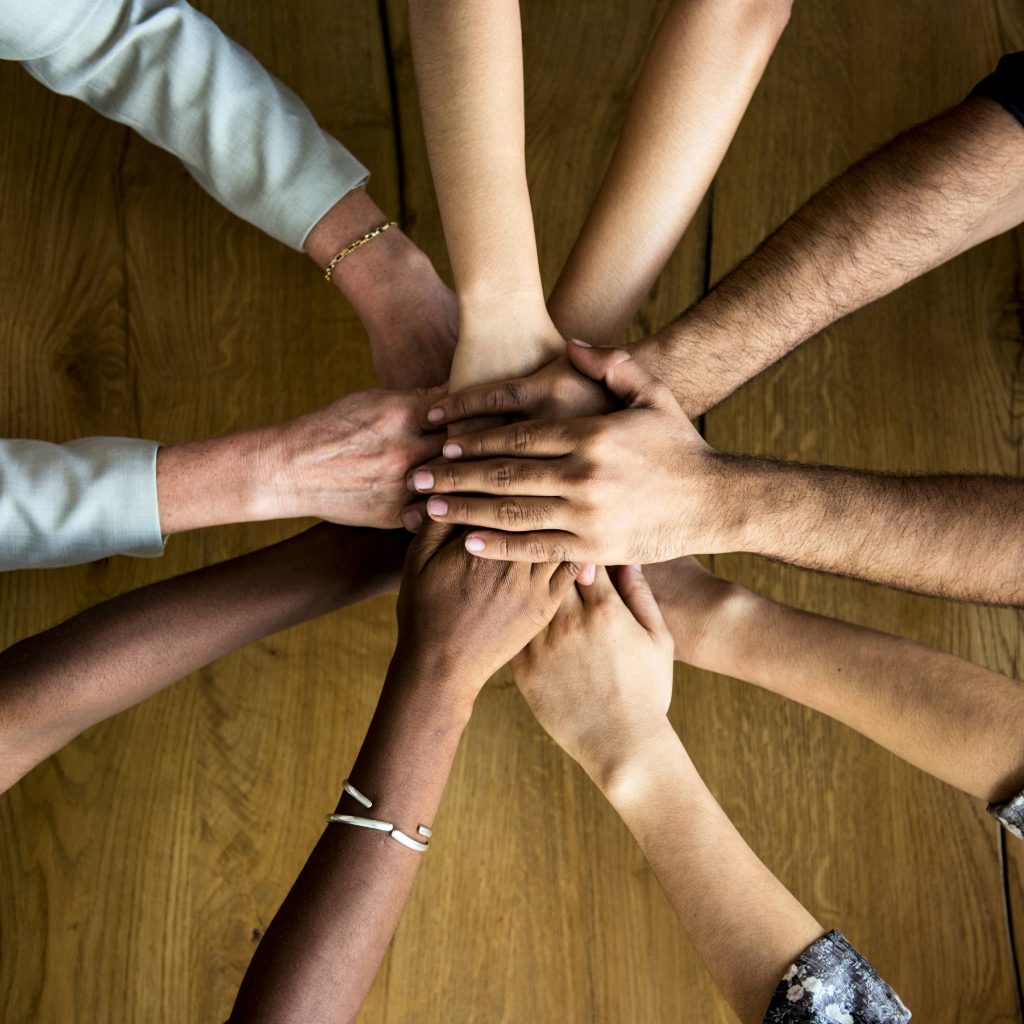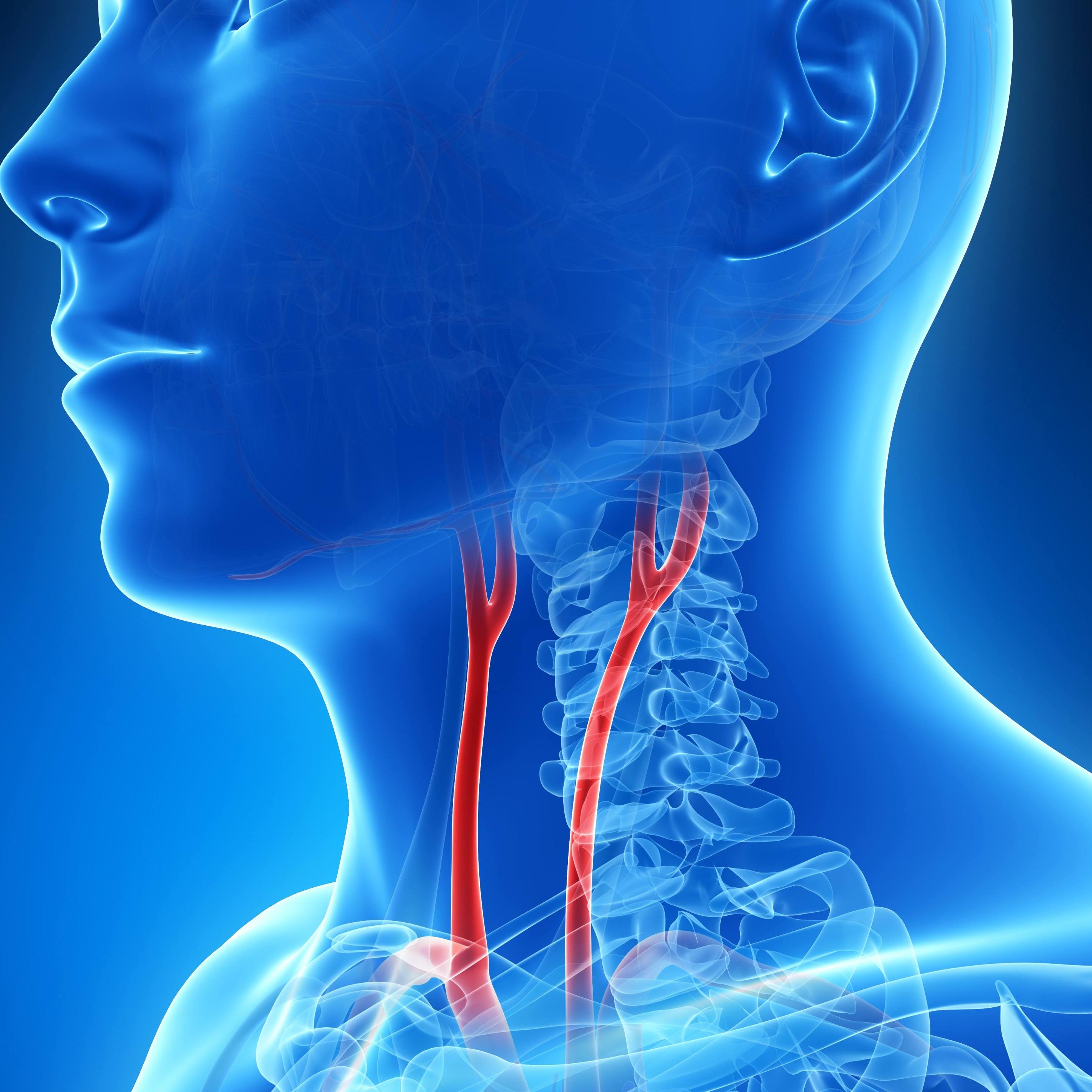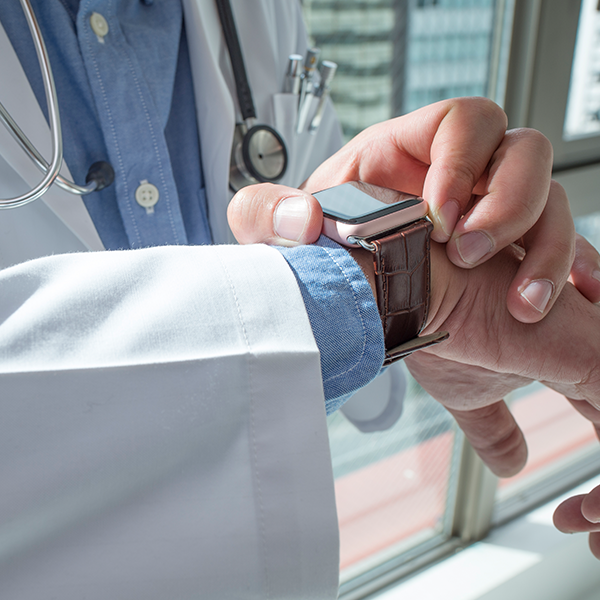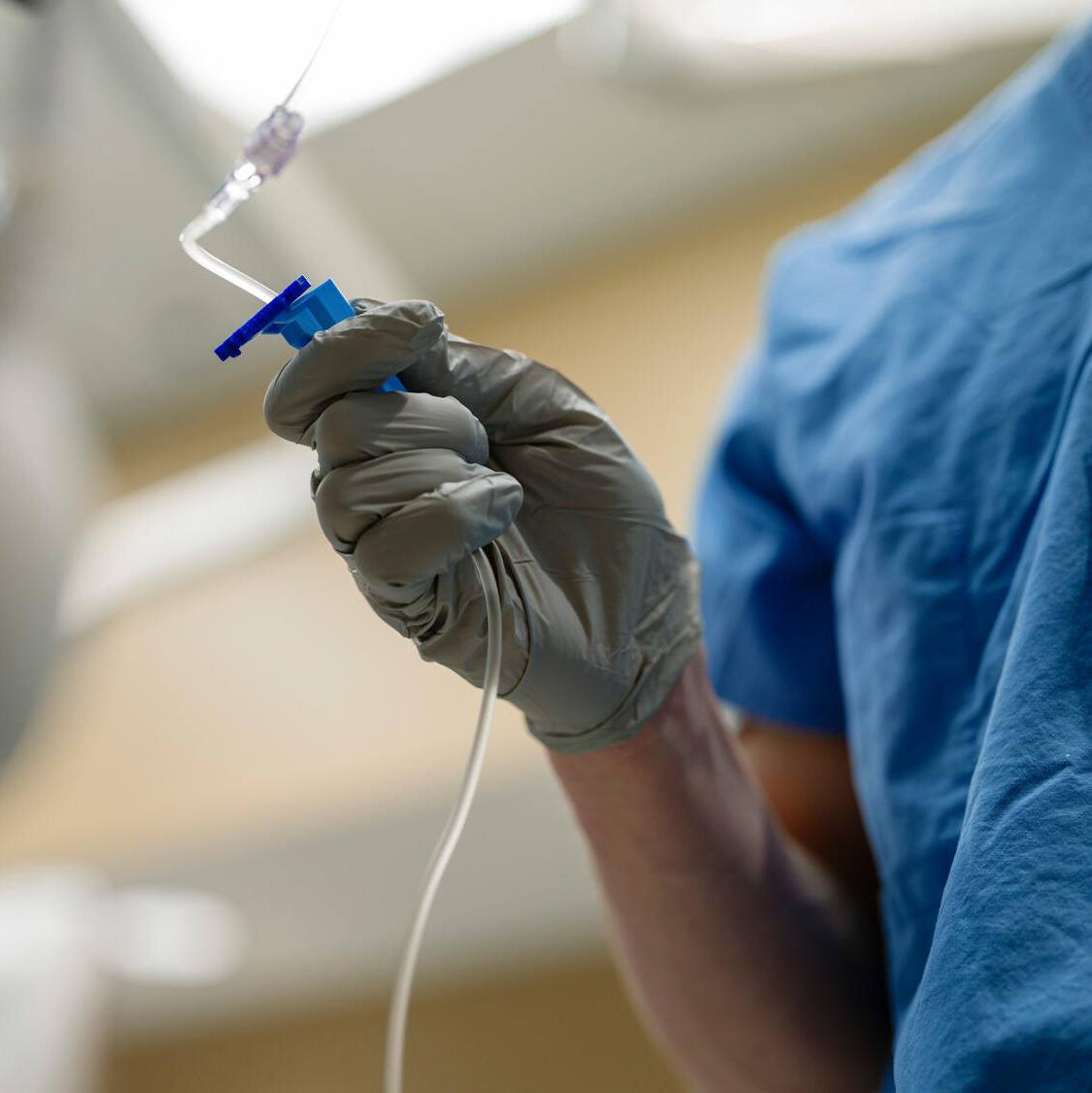-
Native community experts guide tobacco cessation research
When Mayo Clinic approached Phoenix resident Kory Billie about helping researcher Annie Rusk, M.D., design a tobacco cessation intervention tailored for Native Americans, he jumped at the chance.
Billie, who has smoked most of his life, understands how using tobacco can negatively affect many aspects of a person's health. He is also a member of the Navajo Nation and has witnessed the challenges that family, friends and other members of his tribe have faced quitting tobacco. In recent years, he has watched the rising use of vaping among Navajo youth with concern. He wants to discourage young people from using tobacco except for ceremonial purposes.

"Science seeking to cure disease and transform the way we deliver healthcare requires a direct connection to the people we serve."
Annie Rusk, M.D.
Billie's experiences made him an ideal candidate to advise Dr. Rusk on her research through a Mayo Clinic program called Community Engagement (CE) Studios.
CE Studios is a consultation service that connects researchers to a group of "community experts" who represent the researcher's population of interest. These experts meet with the researcher, usually during a study's planning phase, to learn how the study is being designed, ask questions and provide feedback.
Since Mayo Clinic introduced CE Studios in 2021, Dr. Rusk has used it numerous times. She believes community input is essential for all research projects, regardless of their focus.
"By involving people with lived experiences, we can gain valuable insights and ensure our research is relevant and impactful," says Dr. Rusk. "Even discovery science projects taking place in a lab can benefit from community perspectives."
Lived experiences provide key insights
For the CE Studios session with Dr. Rusk, Billie joined three other community experts from tribes in the Midwest, Alaska and Canada in a virtual meeting. The four community experts were there to advise Dr. Rusk on a new clinical trial.
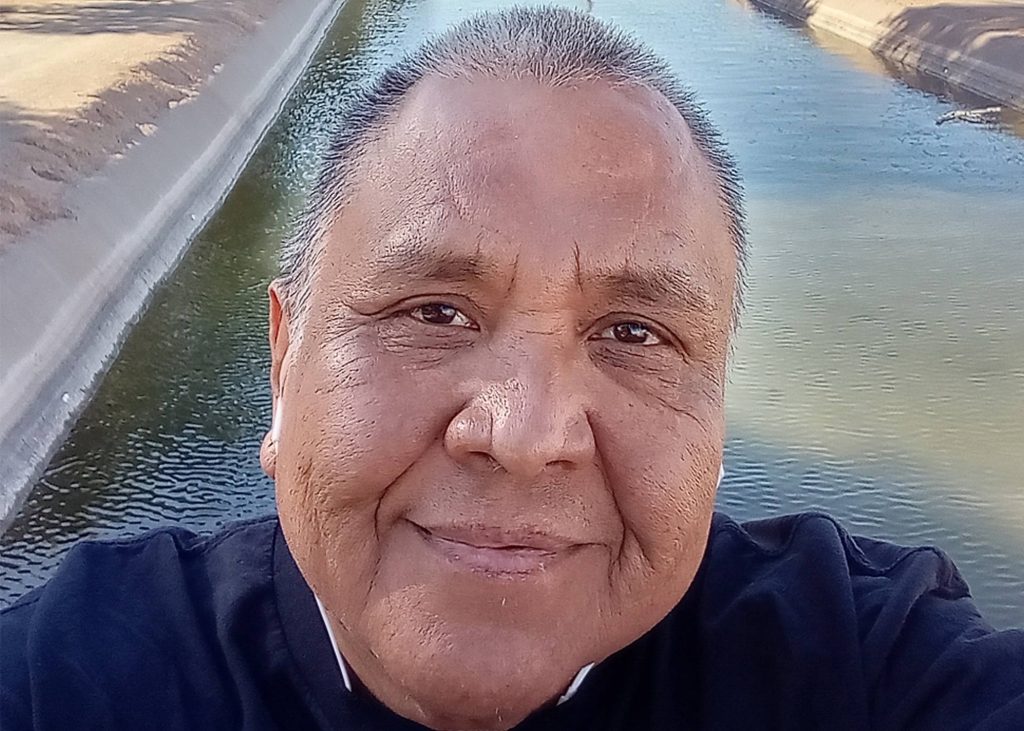
Kory Billie, a member of the Navajo Nation from Phoenix, wants to discourage youth in his community from using tobacco, except for ceremonial purposes.
Dr. Rusk's research focuses on understanding barriers to smoking cessation among Native Americans. She felt it was important to consult with people from a variety of Indigenous communities to ensure her research aligned with their community health needs and priorities.
Billie says he enjoyed this opportunity to connect with like-minded people from similar backgrounds, and to speak with Dr. Rusk about how tobacco use was affecting communities like his. He shared his experiences with homelessness and addiction, as well as the difficulty of accessing smoking cessation resources in Indian Country.
What Dr. Rusk learned from Billie and the other community experts during the CE Studios session motivated her to make an important change to her study design.
The elements of the study that resonated best with the community experts were those geared toward developing practical behavioral health interventions. Billie and the other experts emphasized that understanding the social and cultural drivers of smoking would be key to achieving meaningful outcomes. "You have to understand a person's environment and the way they're brought up," says Billie.
The community experts were less keen on a genetic analysis component Dr. Rusk had planned to include. They felt this aspect did not align meaningfully with community health priorities. Based on this feedback, Dr. Rusk eliminated this component from her study.
While incorporating this kind of feedback can be challenging, Dr. Rusk says the long-term benefits are worth it for all.
"Science seeking to cure disease and transform the way we deliver healthcare requires a direct connection to the people we serve," she says.
Health is a blessing
Billie says he appreciated this chance to participate in CE Studios. He hopes that the knowledge he and the other experts shared will give Dr. Rusk the context she needs to develop a tobacco intervention that will have a lasting impact. Upon completion of the study, he looks forward to hearing from her to see the results.
Billie encourages other people to consider participating in CE Studios to help advance research to improve the health of their communities. He connects his motivation for this work to a Navajo proverb that reminds his people to live their lives with purpose: "Remember to walk in beauty. Beauty before you and beauty behind you."
If the community can improve the health of its people today, Billie says, they will pass that blessing on to future generations.
Get involved in CE Studios
A CE Studios community expert can be a person with any type of lived experience. Experts receive a small honorarium in exchange for their time. People interested in joining Mayo Clinic’s database of community experts should complete a Community Expert Enrollment Form.
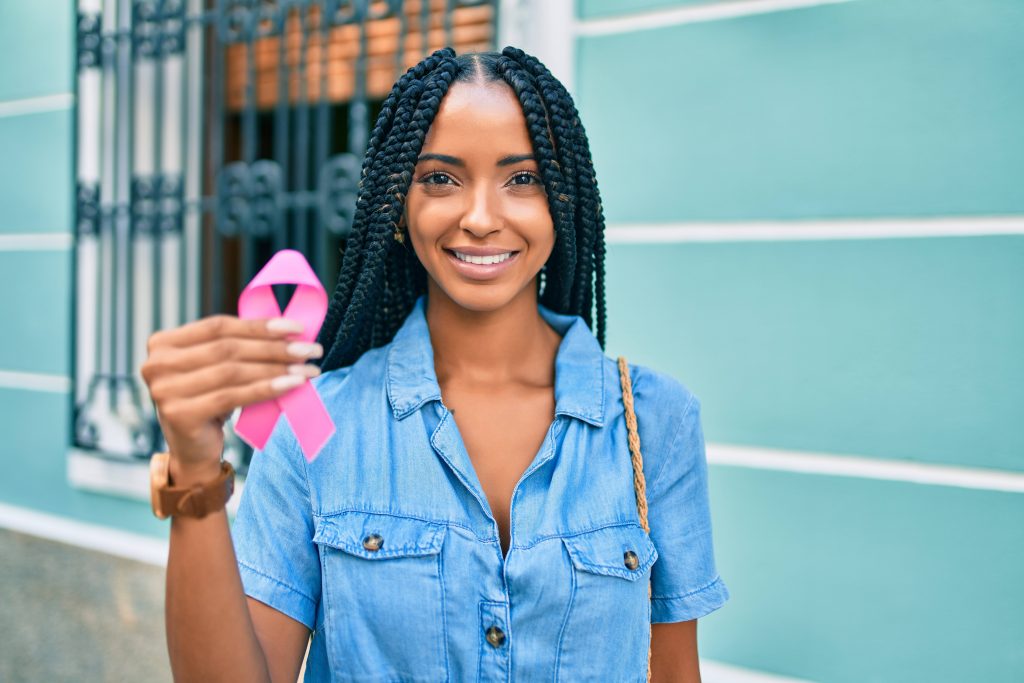
Mayo Clinic Community Engaged Research
Learn more about community outreach and engagement and community-engaged research at Mayo Clinic.
This work is supported by Mayo Clinic Center for Clinical and Translational Science and by Mayo Clinic Comprehensive Cancer Center.
